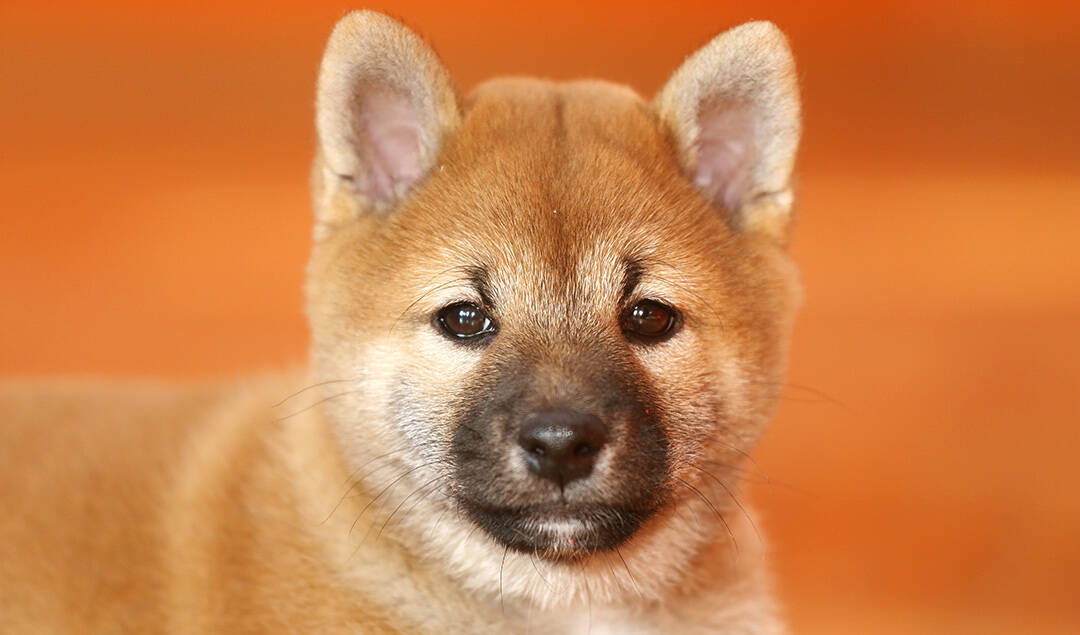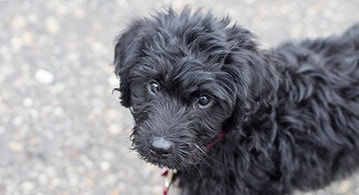Relatively new to America, the Shiba Inu has been steadily gaining popularity. This highly intelligent breed was originally developed in Japan around 300 B.C. for hunting purposes and was declared to be a national treasure in Japan in 1936.
Nearly becoming extinct after World War II, committed breeders working with just three surviving bloodlines were able to reestablish the breed while keeping it as pure as possible. Today, it is believed that Shiba Inus are one of the oldest surviving dog breeds and their DNA is closely related to that of wolves.
How much do Shiba Inu puppies cost? Generally, a puppy can cost anywhere from $1,000 to more than $3,500, with an average cost of one with limited registration being $2,400. Prices can vary a great deal and are dependent on several factors, such as location and integrity of the breeder.
Shiba Inus typically live to be between 12 and 15 years old, so the decision to bring one into your life should not be taken lightly. Aside from the commitment and dedication needed to raise and train a Shiba Inu properly, price should be a consideration as well. This is not a particularly inexpensive breed, but knowing what to expect and understanding why they are a bit on the pricey side may help you decide.
We contacted 20 different breeders to gather information and share with you real-world prices, take you through what factors impact cost, and explain what look for in a breeder.
Actual Shiba Inu Prices
When searching for a Shiba Inu puppy from a responsible breeder, it is often helpful to know exactly what to expect as far as price goes. The following table provides some pricing examples from across the country.
| Breeder Name | Location | Price |
| Sho Mai Sou | Ohio | $2,500 |
| K-Bar Shibas | Oklahoma | $1,800 |
| Castle Shibas | Oregon | $2,200 |
| Kayobi Shibas | Minnesota | $2,000 |
| Frerose Shibas | South Carolina | $2,000 |
The prices listed are for puppies being sold as purely companion pets, not for showing or breeding. Fully registered dogs destined for the show ring will cost quite a bit more, often well above $3,500. The above breeders all require a signed contract stating that the buyer agrees to spay or neuter their puppy when the time comes.
You might be wondering about the varying prices of purebred Shiba Inus. What causes the price to fluctuate so much from breeder to breeder? Well, let’s take a look at some of the reasons why some breeders charge more than others.
What Impacts Cost Differences
The location of the breeder tends to greatly affect the cost of Shiba Inu puppies. Breeders who live in or near large cities often place higher price tags on their puppies. This is due to the fact that metropolitan areas usually have a higher cost of living and better wages than more remote, rural areas of the country.
The old adage, “You get what you pay for,” applies to dogs as well. Breeders who routine show their dogs and can boast of many winnings in the ring will naturally price their puppies higher and rightly so. Excellent bloodlines, ideal body conformation, and correct temperament are simply worth more.
The principle of supply and demand also influences the cost of puppies. When a breed suddenly rises in popularity, the demand for puppies greatly increases and the prices rise accordingly. Shiba Inus tend to produce rather small litters, so it is common for breeders to have difficulty supplying enough puppies to meet the demand without overtaxing their breeding stock.
What Factors Indicate A Quality Shiba Inu Breeder
Unfortunately, there are many breeders out there who are only interested in the mighty dollar, not raising healthy, robust puppies who adhere to the breed standards. To greatly increase your odds of acquiring a healthy puppy with a friendly temperament, finding a quality breeder is imperative.
So, how can you differentiate between a quality breeder and one who only has profit in mind? Well, a quality breeder should have the puppy’s best interests in mind and be willing to spend a good deal of time with you before you leave with your new puppy.
A quality breeder should first ask questions to determine if you can indeed provide a suitable, permanent home for the puppy. Questions pertaining to your lifestyle and even your income may come up as the breeder makes sure that the pup will be well cared for.
Having established that you will take proper care of the puppy, a quality breeder will provide you with plenty of information for a variety of topics including:
- General Shiba Inu traits and personality, such as their loyalty and independent spirit.
- Puppy care and housebreaking.
- Food, nutrition requirements, and feeding schedules.
- Facts on microchipping, pet insurance, and activities your dog will benefit from.
- Standard vaccination and deworming schedules.
- Common health issues.
- Negative aspects of Shiba Inus, like their tendency to disappear when allowed off-leash.
Quality breeders will be glad to show you their breeding dogs’ health certificates and provide you with a certificate of health from a licensed veterinarian for your new puppy. They should openly share the results of various health screenings routinely performed and make the results available to the public.
Breeders who are truly committed to furthering the breed will only breed Shiba Inus and ensure that the females are not bred to often. They will also require you, the buyer, to sign a contract with your responsibilities clearly laid out.
Steer clear of any breeder who is not willing to allow you to view the puppies’ living quarters or to meet the parents (if both are on-site).
Lastly, quality breeders of Shiba Inus should strongly encourage you to sign up for obedience and socialization classes as soon as possible. They should also provide you with contact information should you have any questions later on.
Shiba Inu Rescues
All too frequently, people fall in love with the fox-like appearance and quirky personality of Shiba Inus and rush out to purchase one before learning enough about the breed. Sadly, these people quickly realize that they are in over their heads and the poor dog, through no fault of his own, winds up abandoned at a shelter.
Fortunately, there are many rescue organizations committed to rehabilitating these unwanted Shiba Inus and fostering them until they can be placed in a forever home. If the cost of a new puppy is not in line with your budget, adopting a Shiba Inu in need is a wonderful alternative.
The National Shiba Club of America has put together a list of Shiba Inu rescue organizations located throughout the country. Adoption fees will vary, but customarily fall between $150 and $400 for adult dogs. Shiba Inu puppies are not commonly seen in rescue organizations, but when they do show up, the adoption fee is often higher.
Many times adoption fees do not come close to covering the cost involved with fostering and rehabilitation.
Related Questions
What health problems do Shiba Inus have?
While Shiba Inus are a relatively healthy breed, as with other purebred dogs, there are certain health issues that are somewhat common. Hip dysplasia, cataracts, glaucoma, patella luxation, entropion, epilepsy, allergies, Progressive Renal Atrophy, and hypothyroidism are all issues to be aware of.
Do Shiba Inus like to cuddle?
Shiba Inus are not the most cuddly of breeds. Most will tolerate being petted or stroked gently and like to be in close proximity to their owner, but curling up on a lap is not usually their cup of tea. They much prefer to keep their dignity intact and show their love through their loyalty.
In A Nutshell
Potential buyers can expect to pay anywhere from $1,000 to $3,500 for a Shiba Inu with limited registration and typically must agree to spay or neuter their new pet. Dogs purchased for breeding or showing purposes will cost more. Prices vary based on location, quality, availability, and demand.
Finding a quality breeder is important to ensure that your new puppy will be healthy and conform to American Kennel Club breed standards in body type, color, and temperament. Responsible breeders will go out of their way to place their puppies in ideal homes, thoroughly educate the buyers, and be available for future contact.





